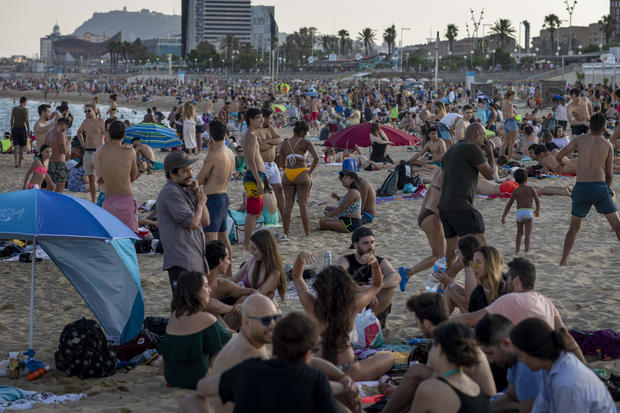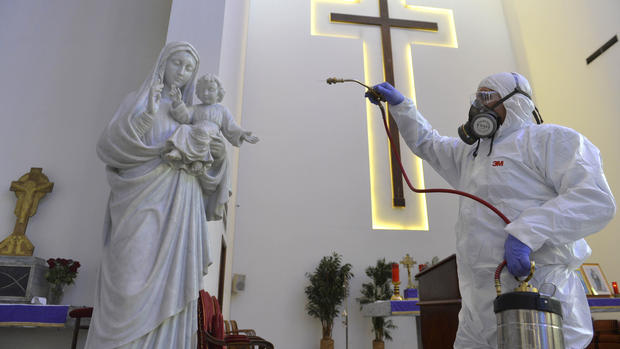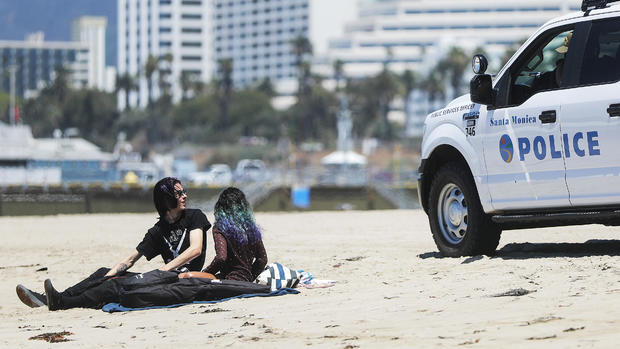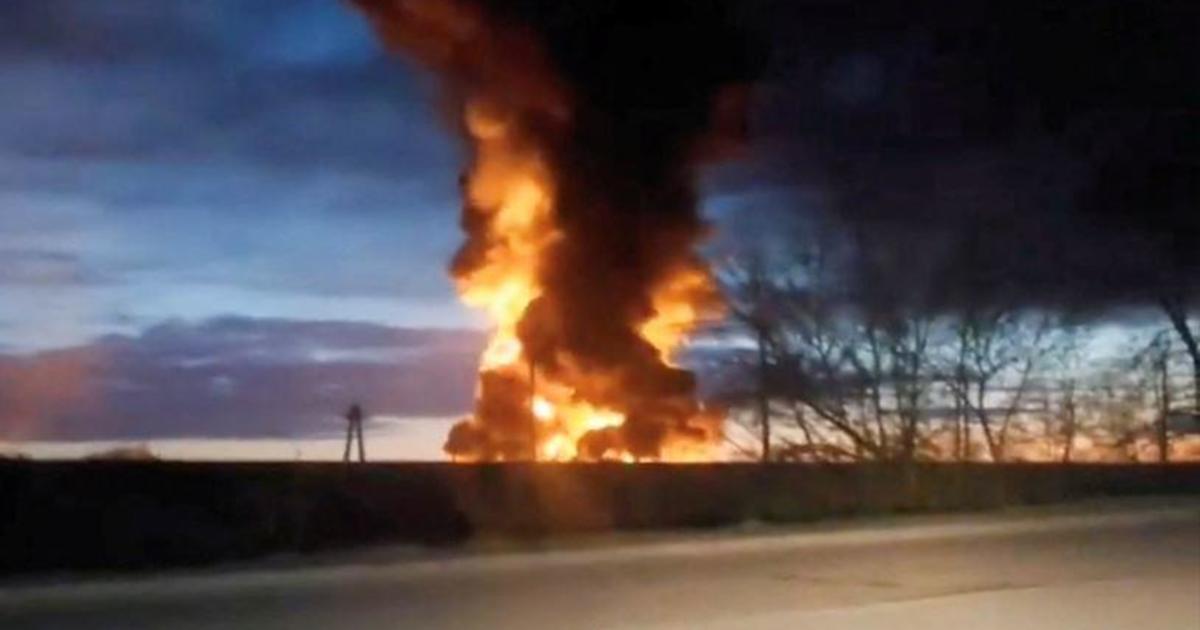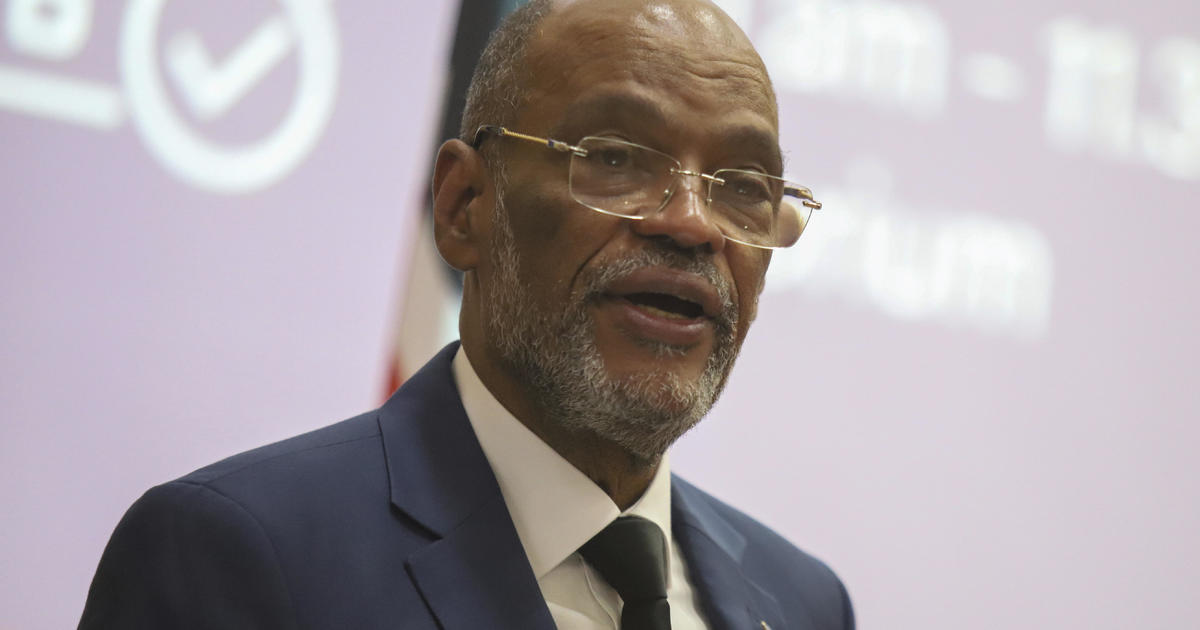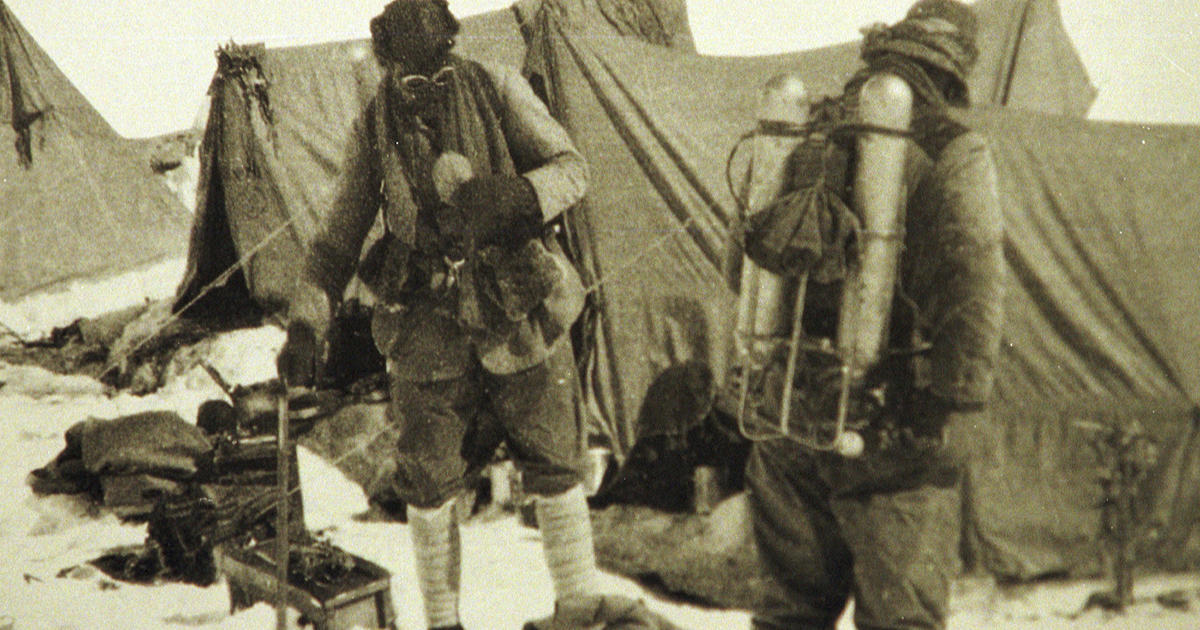Spain lifts national state of emergency after 3-month coronavirus lockdown
In an effort to restart its economy, Spain ended its national state of emergency on Sunday after three months of lockdown due to the coronavirus pandemic, BBC News reports. The country's 47 million residents can freely travel for the first time since mid-March and visitors from Britain and the 26 European countries that allow visa-free travel can visit Spain without going through a two-week quarantine.
Spanish Prime Minister Pedro Sánchez said that hygiene controls must be followed and had this warning: "The virus can return and it can hit us again in a second wave, and we have to do whatever we can to avoid that at all costs."
BBC News said Spain usually attracts some 80 million tourists a year, providing 12% of the country's GDP. The Associated Press reports there was only a trickle of travelers at Madrid-Barajas Airport as the travel restrictions were lifted, a stark contrast to a normal June day when it would be crowded.
"It's very special, it's three and a half months since I've been here!" a Swiss woman told BBC News at the airport. She lives in Madrid and traveled home on a flight from Zurich.
BBC News also noted that several bars and restaurants in Spain have been open for some weeks. A number of them near the city's famous Plaza Mayor were busy Sunday afternoon.
Despite the loosening restrictions in Spain, other areas like Brazil and South Africa are facing rises in COVID-19 infections. The total number of worldwide cases has topped 8.8 million and the virus has killed more than 465,000 people, according to a tally by Johns Hopkins University. Spain's death toll is more than 28,000, the third-highest in the European Union, per BBC.
Elsewhere, Brazil is grappling with 50,000 new cases in one day, according to health officials. President Jair Bolsonaro has been downplaying the risks there, even though it has the second-highest death toll in the world, behind the U.S.
South Africa reported a one-day high of almost 5,000 new cases Saturday and 46 deaths, AP reports. But President Cyril Ramaphosa announced a further loosening of restrictions, even as the virus spreads.
In India, the rush to ease lockdowns may have helped its economy, but it's also resulted in more infections. New Delhi is converting train carriages into makeshift COVID-19 wards, offering beds and oxygen, but not much social distancing.
In the U.S., the virus seems to be spreading across the West and South. Arizona on Sunday reported 3,100 new infections, just shy of Friday's record-high, and 26 deaths. Nevada also reported a new high of 445 cases, according to AP. In New York, once the nation's epicenter, the virus has killed more than 17,500 people since the start of the pandemic, according to city data.
Florida on Saturday reported 4,049 new coronavirus cases, another consecutive single-day record increase in cases. The number of statewide infections has surged to at least 97,000 as of Sunday. There have been more than 3,160 deaths in Florida due to COVID-19. The state has tested nearly 1.6 million people, according to its health department. Florida Governor Ron DeSantis hasn't indicated any rollback of the state's reopening, despite the surge in COVID-19 deaths.
Elizabeth Palmer and Sophie Lewis contributed to this report.
